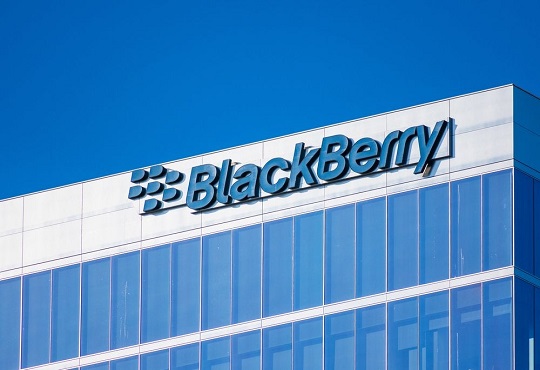BlackBerry Opens IoT center To Team up With Firms Locally
CIOTechOutlook Team | Friday, 07 April 2023, 03:26 IST
 Via its newest internet of things (IoT) centre in Hyderabad, the software division of Canadian device manufacturer BlackBerry is hoping to collaborate on innovations in the automotive and technology sectors with partners like Mercedes, Qualcomm, Bosch, and KPIT Technologies. The center's primary focus will be on promoting innovation inside its QNX operating systems division and Ivy in-vehicle software platform.
Via its newest internet of things (IoT) centre in Hyderabad, the software division of Canadian device manufacturer BlackBerry is hoping to collaborate on innovations in the automotive and technology sectors with partners like Mercedes, Qualcomm, Bosch, and KPIT Technologies. The center's primary focus will be on promoting innovation inside its QNX operating systems division and Ivy in-vehicle software platform.
“We have a lot of partners in India with whom we can collaborate and co-innovate. Qualcomm is present here and we also work with Bosch and KPIT Technologies, which are present here in multiple locations who build embedded applications on QNX for original equipment manufacturers (OEMs),” said Raj Jain, vice president and head of the Hyderabad centre.
According to Jain, the company will also collaborate directly with OEMs and auto part companies that have research and development (R&D) departments in India, like Mercedes and Aptiv.
The cybersecurity division already has locations in Bangalore and Gurgaon in India. Businesses like banks, financial services, and governments are among its enterprise clientele.
According to the business, there will be 30.9 billion IoT devices on the market in 2025, up from 13.8 billion in 2021. By the end of the current calendar year, it plans to hire about 100 engineers in India for positions in product engineering, embedded systems, and the cloud.
In the first half of 2022, the IoT division's revenue increased by 23%. Over 70% of its revenue comes from the car industry, with the remaining 40% coming from other sectors like robotics, heavy engineering, and medical devices.
“Whether it is an EV or internal combustion engine, a lot of systems in the car are similar. There is still more software and safety features going to be in the car. This is surely an uplift for us,” John Wall, senior vice president and head of BlackBerry Technology Solutions, said when asked about the impact of EVs or autonomous driving on the business.
In the 2000s, BlackBerry became well-known throughout the world for its smartphones and pagers, and for many years, it dominated the US device market. But, because to fierce competition from Apple and Android in the smartphone market, it lost its top spot. Since then, under the direction of CEO John Chen, who assumed control in 2013, the company has shifted to providing software and cybersecurity services.




